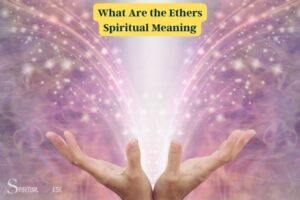What Is the Meaning of Spiritual Experience? Divine Presence
The meaning of a spiritual experience is a deeply personal and transformative encounter or event that brings about a profound sense of connection with a higher power, divine presence, or the transcendent nature of reality.
A spiritual experience, also known as a mystical or transcendent experience, often occurs during times of deep contemplation, meditation, or in moments of extreme emotional turmoil or intense joy.
It can come in the form of a sudden insight, an overwhelming sense of peace, or an extraordinary feeling of unity with all living beings and the universe.
These experiences can lead to lasting changes in individuals’ perceptions, beliefs, and values, as well as impact their mental, emotional, and spiritual well-being.
A spiritual experience can serve as a powerful catalyst for personal growth and transformation, as it often challenges an individual’s preconceived notions and beliefs about themselves and the world around them.
Through experiencing a sense of connection with something greater, individuals may develop a renewed sense of purpose, develop new perspectives and values, and gain a greater appreciation for the interconnectedness of all things.
This profound impact often leads to lasting changes in their mental, emotional, and spiritual well-being.
10 Term: Meaning of Spiritual Experience
| Term | Definition |
|---|---|
| Spiritual Experience | A profound, personal encounter or feeling of connection with a higher power, divine being, or transcendent reality. |
| Transcendence | Going beyond the limits of ordinary human experience, cognition, and perception. |
| Mystical Experience | A deeply felt, direct experience of unity, oneness, or connection with God or the divine. |
| Altered States of Consciousness | Changes in mental functioning or awareness that differ significantly from ordinary waking consciousness, often associated with spiritual experiences. |
| Peak Experience | A moment of intense joy, wonder, or awe that transcends everyday perceptions and provides a sense of deeper meaning or connectedness. |
| Religious Experience | A spiritual experience that involves an encounter with, or revelation from, a divine or sacred reality, often associated with organized religious traditions. |
| Numinous Experience | A spiritual experience characterized by feelings of awe, fascination, and profound mystery, often accompanied by an awareness of the sacred or divine. |
| Spiritual Awakening | A transformative shift in one’s understanding or awareness of the spiritual nature of reality, often triggered by a spiritual experience. |
| Spiritual Practices | Activities, rituals, or disciplines that promote spiritual growth, self-awareness, and connection with a higher power or transcendent reality. |
| Spirituality | A sense of connection to something larger than oneself, often involving a search for meaning in life or a desire for personal growth and self-discovery. |
Key Takeaway

Five Facts About Spiritual Experience
What Is Spiritual Experience?
Spirituality is a complex topic that can mean different things to different people. It involves finding a deeper sense of purpose and meaning in life, beyond the physical realm.
While some people might associate spirituality with organized religion, others may view it as a personal journey that isn’t bound by a specific set of rules.
At the heart of spirituality lies a spiritual experience, a profound and transformative encounter with the divine or mystical world.
Defining Spiritual Experience
Defining a spiritual experience can be a bit tricky since it’s a subjective and personal occurrence. However, there are a few key elements that many spiritual experiences share:
- A sense of connection to something greater than oneself, such as god, the universe, or a divine force.
- A profound sense of awe and wonder.
- A feeling of being transformed on a deep level.
- A deep sense of peace and contentment.
- A sense of unity and interconnectedness with all things.
The Nature Of Spiritual Experience
Spiritual experiences take many different forms, and they can happen in many different contexts. It’s not uncommon for people to experience spiritual awakenings during meditation, prayer, or while in nature.
Some people may also experience a spiritual encounter during a life-changing event, such as the birth of a child, a near-death experience, or a moment of enlightenment.
Interestingly, spiritual experiences also seem to be universal, occurring across cultures, religions, and belief systems.
While the specifics of the experience may differ, the underlying sensations of connection, awe, and transformation seem to be a common thread.
The meaning of spiritual experience is a topic that continues to fascinate and intrigue people across the world.
While it’s difficult to define exactly what constitutes a spiritual experience, there are certain themes and elements that seem to be common among those who have had these profound encounters.
Ultimately, spirituality is a personal journey, and each individual must define it for themselves.
The Various Types Of Spiritual Experiences
Spiritual experiences can come in various forms and are deeply personal and subjective. They can leave a profound impact on one’s life and change their perspective on the world.
Here are some of the most common types of spiritual experiences:
Mystical Experiences
Mystical experiences are often described as feelings of unity with a greater reality or power. These experiences can involve a sense of timelessness, awe, and wonder.
Some common examples of mystical experiences include:
- Feeling a sense of oneness with nature
- Having a sense of being connected to something larger than oneself
- Feeling a sense of peace or tranquility
- Having a feeling of unconditional love for oneself and others
Religious Experiences
Religious experiences involve a feeling of connection to a particular religion or belief system. These experiences can involve a sense of personal revelation, a feeling of being in the presence of a divine force, or a deep sense of faith.
Some common examples of religious experiences include:
- Feeling a sense of awe or wonder during a religious ceremony
- Experiencing a sense of transcendence during prayer or meditation
- Having a feeling of inner peace or clarity after attending a religious service
- Feeling a sense of connection to a higher power or deity
Transpersonal Experiences
Transpersonal experiences involve a sense of unity with the universe and all living beings. These experiences can involve a feeling of connection to a greater reality or consciousness beyond one’s individual self.
Some common examples of transpersonal experiences include:
- Feeling a sense of interconnectedness with all living beings
- Having an out-of-body experience or a sense of being outside of one’s physical body
- Feeling a sense of transcendence during a spiritual practice like yoga or meditation
- Having a profound sense of inner peace and calm
As one can see, spiritual experiences are diverse and unique to each individual. They can come in different forms and can be sparked by various triggers, which is why it is essential to explore and be open to experiencing the spiritual world around us to find our own path.
How To Recognize Spiritual Experience
What Is The Meaning Of Spiritual Experience
Have you ever experienced a sense of connection to something greater than yourself? Or have you ever felt like your sense of self has expanded beyond your physical body?
These are just a few examples of spiritual experiences that people may encounter at some point in their lives.
Spiritual Experience Symptoms
Spiritual experiences can take many forms, but they often share certain common symptoms, including:
- Sense of connection to a higher power or divine presence
- Heightened sense of peace and well-being
- Feeling of unity or oneness with the universe
- Increased clarity and understanding of life’s purpose
- Enhanced intuition and psychic abilities
Spiritual Awakening Signs
Spiritual awakening is a process that can occur over an extended period, or it can happen more suddenly. It is often characterized by a shift in consciousness and perspective on things like personal values and belief systems.
Here are some signs of spiritual awakening:
- Feeling like you are on a path of self-discovery and personal growth
- Being more open-minded and less judgmental of others
- Feeling drawn to explore spiritual practices like meditation or yoga
- Experiencing synchronicity and a sense of being in the right place at the right time
- Developing a deeper sense of empathy and compassion for others
Spiritual Crisis Symptoms
Spiritual crises can be triggered by significant life events such as loss or trauma. These crises often force people to question their belief systems and can lead to a sense of spiritual disconnection.
Here are some symptoms of a spiritual crisis:
- Feelings of disorientation and a loss of meaning in life
- Inability to find purpose or direction
- Struggling with issues related to morality and ethics
- Intense feelings of fear or anxiety without a clear cause
- Difficulty accepting a higher power or divine presence
Spiritual experiences can vary significantly from person to person and can be shaped by a variety of factors such as religion, culture, and personal belief systems.
Recognizing the symptoms of a spiritual experience can help you navigate this process more effectively and gain a more profound understanding of yourself and your place in the universe.
Benefits Of Spiritual Experiences
Spiritual experiences are those moments that connect individuals with their inner selves, a higher power, or the universe. These experiences can have tremendous effects on an individual’s overall wellbeing, from their psychological state to their physical health and beliefs about life.
Here are some of the benefits of spiritual experiences:
Psychological Benefits
- Provides a sense of purpose and direction in life
- Promotes emotional stability and reduces stress and anxiety
- Enhances self-awareness and self-discovery
- Creates a sense of inner peace and fulfillment
- Offers clarity, understanding, and acceptance of life events and situations
- Helps in overcoming addiction and negative behavior patterns
Physical Benefits
- Improves overall physical health and wellness
- Enhances the immune system
- Lowers blood pressure and reduces the risk of heart disease
- Helps in managing chronic pain and neurological disorders
- Enhances sleep quality and quantity
Spiritual Benefits
- Deepens one’s connection with their inner self and the universe
- Helps in developing compassion and empathy towards others
- Creates a sense of interconnectedness and oneness with all beings
- Promotes selflessness and service to others
- Increases one’s faith, beliefs, and sense of spirituality
Spiritual experiences offer a multitude of benefits, ranging from psychological to physical and spiritual health. They are undoubtedly essential in promoting overall wellbeing and living a more fulfilled life.
FAQ On What Is The Meaning Of Spiritual Experience
What Is A Spiritual Experience?
A spiritual experience is a connection with something greater than oneself, offering peace or insight.
How Do I Know If I’ve Had A Spiritual Experience?
If you feel a deep sense of peace, love, or insight after a moment of reflection, you may have had a spiritual experience.
Are Spiritual Experiences Only For Religious People?
Spiritual experiences are available to people of all faiths and beliefs, or none at all.
Can A Spiritual Experience Change My Life?
Yes, a spiritual experience can provide a profound shift in perspective and values, leading to positive changes in your life.
Conclusion
After exploring the meaning of spiritual experience, it�s clear that this is a subjective and personal journey that cannot be defined in a uniform way. It can be a moment of profound transformation or a gradual process of growth and self-discovery.
However, there are some common characteristics that are often associated with spiritual experiences, such as feeling connected to a higher power, experiencing a sense of peace and inner joy, and being transformed or changed in some way.
These experiences can be triggered by various factors, including meditation, prayer, nature, or simply being open to exploring one�s inner self.
Ultimately, regardless of how one experiences spirituality, the key is to embrace the journey and remain open to the lessons and growth that it can bring.
By staying true to oneself and cultivating an awareness of the divine, anyone can experience the beauty and meaning of spiritual connection.






